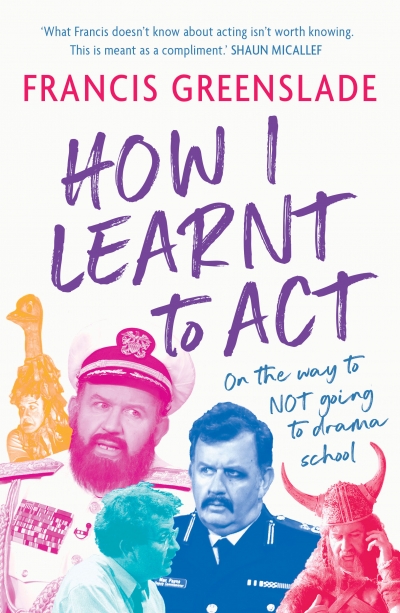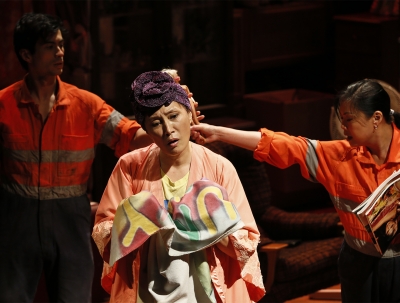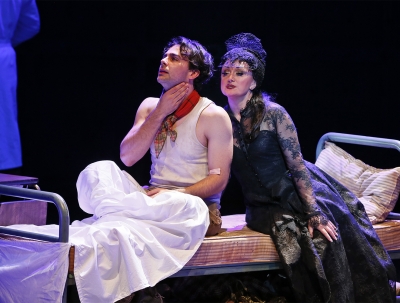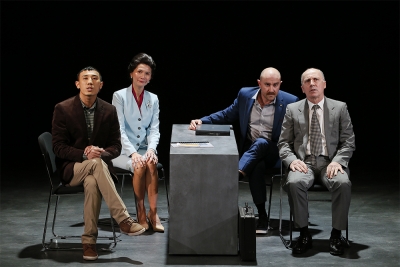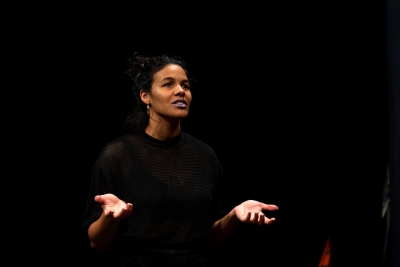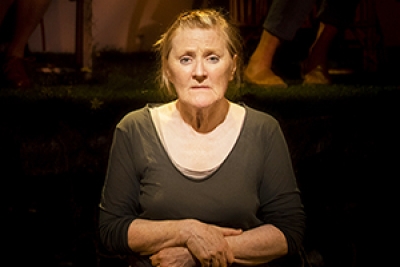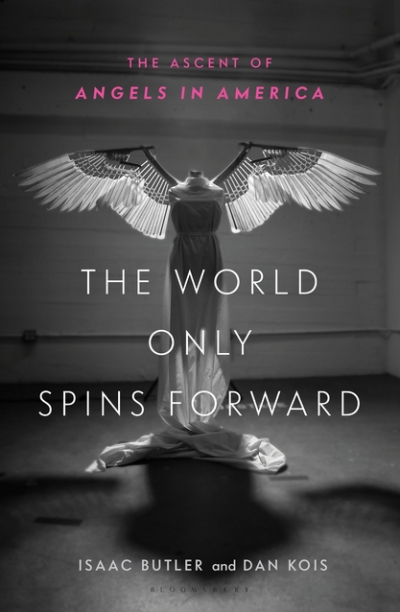Tim Byrne
How I Learnt to Act: On the way to not going to drama school by Francis Greenslade
When attempting to cajole a compulsive hoarder into cleaning up, it’s advisable to start with the things are worth worth keeping, but it shouldn’t distract us from taking out the trash. Ubiquitous television and print personality Benjamin Law’s first foray into playwriting, Torch the Place, is one of four new works appearing in NEXT STAGE Originals, Melbourne Theatre Company’s new commissioning endeavour, the only one that doesn’t come from an established playwright. While there are several things to like in this début, there are a number that should be consigned to the skip.
... (read more)Argentine writer Manuel Puig’s 1976 novel Kiss of the Spider Woman seems to have shed most of its cultural specificity with each new iteration. Most people know it from the 1985 film that transposed the action to a Brazilian prison, for no conceivable reason other than the fact that the director was Brazilian (Héctor Babenco). The 1992 musical, with a book by Terrence McNally and music and lyrics by John Kander and Fred Ebb, goes a step further, and sets it in an undisclosed South American country – as if all political hells were the same, as long as they were subcontinental.
... (read more)To celebrate the year’s memorable plays, films, television, music, operas, dance, and exhibitions, we invited a number of arts professionals and critics to nominate their favourites.
... (read more)The great Spanish novelist Javier Marías includes a scene in A Heart So White (1992) where a translator deliberately mistranslates a conversation between two characters who obviously stand in for Margaret Thatcher and Felipe González. He does this to send a coded message to the other translator in the room, his future wife ...
... (read more)The idea of the outsider is, of course, a concept shared by all living beings; the jellyfish and the silverback gorilla alike have trained themselves to distrust a stranger. But there is something particular about the Australian suspicion of otherness, a ruddy and avuncular mask that hides an abiding, almost pathological, wariness...
... (read more)‘Terrible rage.’ It starts as a question; rhetorical, perhaps. ‘Terrible rage.’ It grows into a statement of fact, an undeniable proof. ‘Terrible rage. Terrible rage. Terrible rage.’ Eventually – in a slow but frightening crescendo, followed by an equally slow but heart-wrenchingly pathetic decrescendo ...
... (read more)Elizabeth Taylor played Maggie to Paul Newman’s Brick in Richard Brooks’s 1958 film adaptation of Tennessee Williams’s Cat on a Hot Tin Roof; a more perfect sexual promise left unfulfilled was never committed to celluloid. But if you want truly pyrotechnical sexual chemistry, it’s hard to look past Taylor’s onscreen work with her real-life husband Richard Burton ...
... (read more)How many variations does it take, how many iterations and transfigurations, before a work of mediocrity becomes a work of genius? And what about a life – at what point do the quotidian accretions of living come to represent a person’s entire existence? What does it actually mean to live an extraordinary life ...
... (read more)
